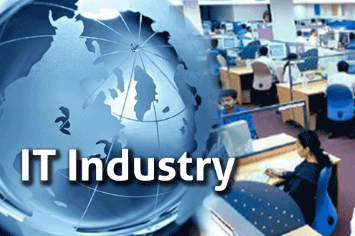The Future of Work in a Tech-Driven World
Introduction
The rapid evolution of technology has significantly transformed the way we work, shaping industries, redefining roles, and creating opportunities that were unimaginable just a few decades ago. As we move further into a tech-driven era, understanding the future of work becomes critical for businesses, employees, and policymakers alike. This article explores the key trends, challenges, and opportunities that define the future of work in a world dominated by technology.
Key Trends Shaping the Future of Work
1. Automation and Artificial Intelligence (AI)
Automation and AI are revolutionizing workplaces by taking over repetitive and mundane tasks, allowing employees to focus on higher-value activities. According to a study by McKinsey, nearly 45% of workplace tasks could be automated with current technologies.
Impact on Jobs: While automation may displace certain jobs, it also creates new roles in AI development, maintenance, and ethical governance.
Skill Shift: Employees must adapt by acquiring skills in areas like machine learning, data analysis, and creative problem-solving.
2. Remote Work and Hybrid Models
The COVID-19 pandemic accelerated the adoption of remote work, which has now become a permanent fixture for many organizations. Hybrid models—a combination of in-office and remote work—are gaining traction.
Benefits: Increased flexibility, reduced commuting time, and access to a global talent pool.
Challenges: Ensuring productivity, maintaining company culture, and addressing cybersecurity risks.
3. Gig Economy and Freelancing
The gig economy, characterized by short-term contracts and freelance work, is growing rapidly. Platforms like Upwork and Fiverr have made it easier for professionals to find work opportunities globally.
Advantages for Workers: Greater autonomy, diverse income streams, and flexible schedules.
Considerations for Employers: Managing a distributed workforce and ensuring compliance with labor laws.
4. Focus on Employee Well-being
Organizations are increasingly prioritizing mental health and well-being to retain talent and boost productivity. Technologies like wearable devices and mental health apps are aiding this shift.
Initiatives: Flexible working hours, wellness programs, and mental health support.
Future Outlook: Well-being will remain a key metric for organizational success.
Emerging Technologies Influencing Work
1. Blockchain Technology
Blockchain is transforming industries by ensuring transparency and security. In the workplace, it is being used for secure transactions, digital identity verification, and smart contracts.
2. Virtual and Augmented Reality (VR/AR)
VR and AR are creating immersive training programs and enhancing remote collaboration. For instance, VR simulations are being used to train surgeons and pilots effectively.
3. 5G Connectivity
The rollout of 5G networks is enabling faster and more reliable communication, essential for technologies like IoT (Internet of Things) and remote operations.
4. Quantum Computing
While still in its infancy, quantum computing has the potential to solve complex problems at unprecedented speeds, impacting industries like finance, healthcare, and logistics.
Preparing for the Future: Skills and Education
1. Upskilling and Reskilling
With technology evolving rapidly, continuous learning is no longer optional. Workers must focus on acquiring new skills to remain competitive.
In-Demand Skills: Data science, cloud computing, cybersecurity, and digital marketing.
Lifelong Learning: Online platforms like Coursera, edX, and LinkedIn Learning are making education accessible to all.
2. Soft Skills Matter Too
While technical skills are crucial, soft skills like communication, adaptability, and emotional intelligence are equally important.
3. STEM Education
Encouraging education in science, technology, engineering, and mathematics (STEM) will prepare the next generation for tech-driven careers.
Challenges and Ethical Considerations
1. Job Displacement and Inequality
As automation and AI advance, certain jobs may become obsolete, leading to economic disparities. Governments and organizations must work together to provide social safety nets and retraining programs.
2. Data Privacy and Security
With increased reliance on technology, protecting sensitive data becomes paramount. Companies must invest in robust cybersecurity measures and adhere to data protection regulations.
3. Ethical Use of AI
Ensuring that AI is used ethically and without bias is a pressing concern. Transparency and accountability will be key to building trust in AI systems.
4. Digital Divide
Access to technology is not uniform across regions and demographics. Bridging the digital divide is essential to ensure equal opportunities for all.
Opportunities in a Tech-Driven Future
1. New Job Roles
Technology is creating entirely new job categories, such as AI trainers, blockchain developers, and VR designers.
2. Global Collaboration
Tech tools like Zoom, Slack, and Asana enable seamless collaboration across borders, fostering innovation and diversity.
3. Enhanced Productivity
Automation tools and AI-powered analytics are helping businesses streamline operations and make data-driven decisions.
4. Sustainable Practices
Technology is aiding sustainability efforts through energy-efficient systems, smart grids, and green technologies.
Strategies for Organizations to Thrive
1. Adopt Agile Practices
Organizations must embrace agility to adapt quickly to technological changes. This includes flexible work arrangements and iterative project management methodologies.
2. Invest in Technology
Staying ahead requires investing in cutting-edge technologies and ensuring that employees are equipped to use them effectively.
3. Foster a Learning Culture
Encouraging continuous learning and innovation will help organizations remain competitive in a tech-driven world.
4. Prioritize Diversity and Inclusion
Diverse teams bring varied perspectives, fostering creativity and better decision-making.
Conclusion
The future of work in a tech-driven world is both exciting and challenging. While technology offers immense opportunities for growth and innovation, it also demands adaptability, continuous learning, and ethical considerations. By embracing change and investing in people and technology, organizations and individuals can thrive in this dynamic landscape. The journey ahead will require collaboration, resilience, and a commitment to building a future where technology serves humanity, not the other way around.







